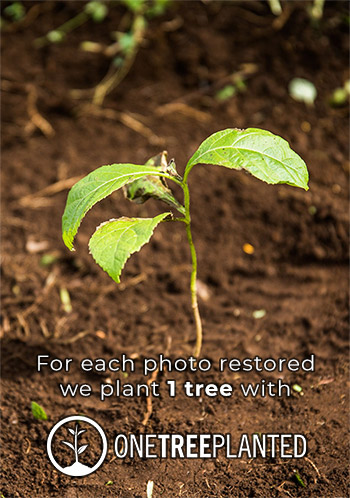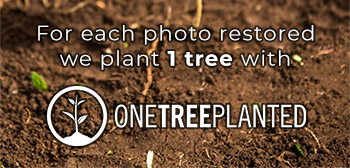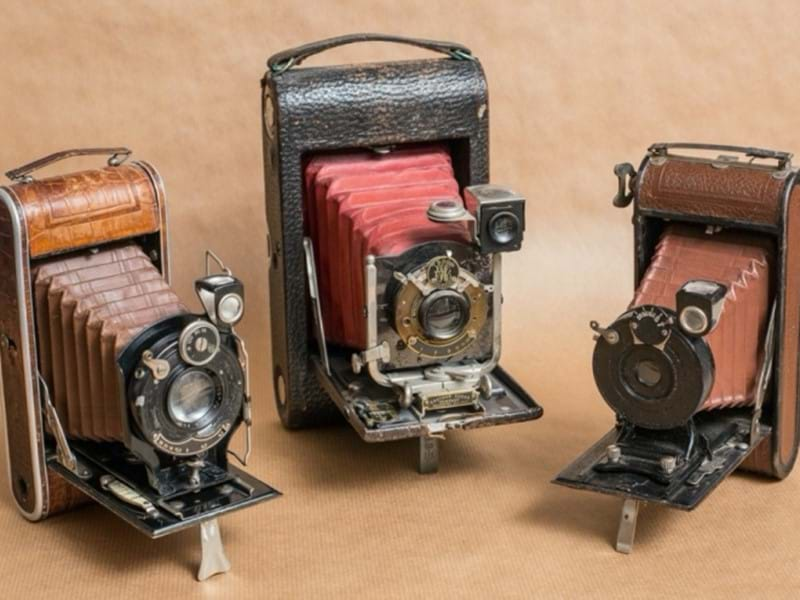The Top 6 Colourised Vintage Photos
If you have a vintage family photo, it is much easier and quicker to colourise it using modern technology. There are many such examples of historical vintage photos that have been colourised and seem better than their original versions.
This famous picture of Albert Einstein, in a more casual and lighter tone, was shot in September 1939. The original photo was in black and white, but its colourised version looks even more vivid.
The person sitting beside him is a local department store owner David Rothman who later became Einstein’s close friend. The photographer took the picture on the beach near the house that the scientist spent several summers in Nassau Point, Long Island, New York.
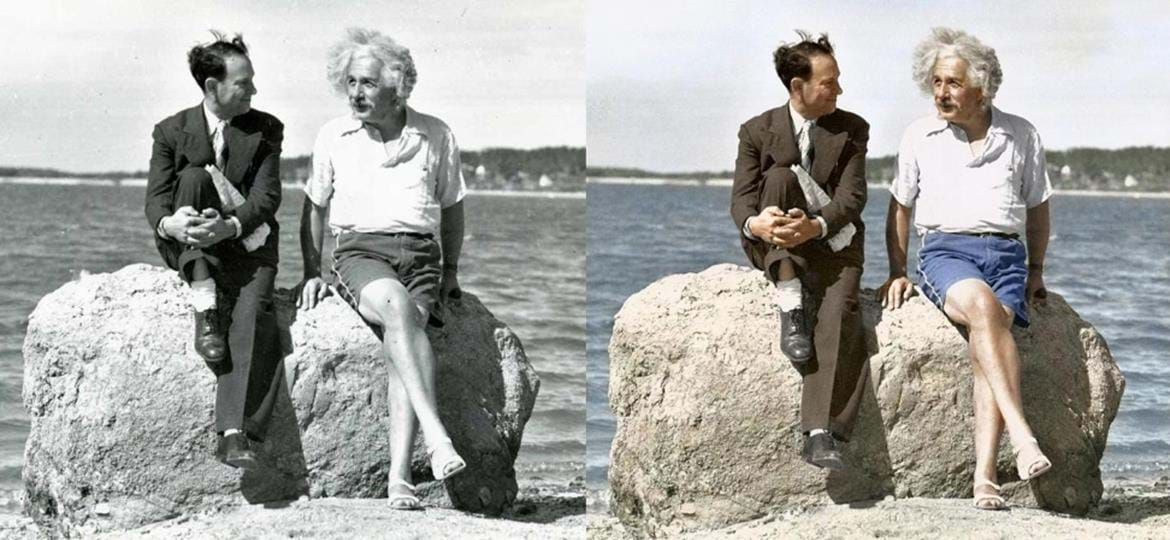
This photograph is a famous vintage image from World War II England. This black and white photo shows British troops aboard their train that was heading to the Western Front during the early months of the war. The snapshot is from September 1939. The colourised version adds more character to all this photo.
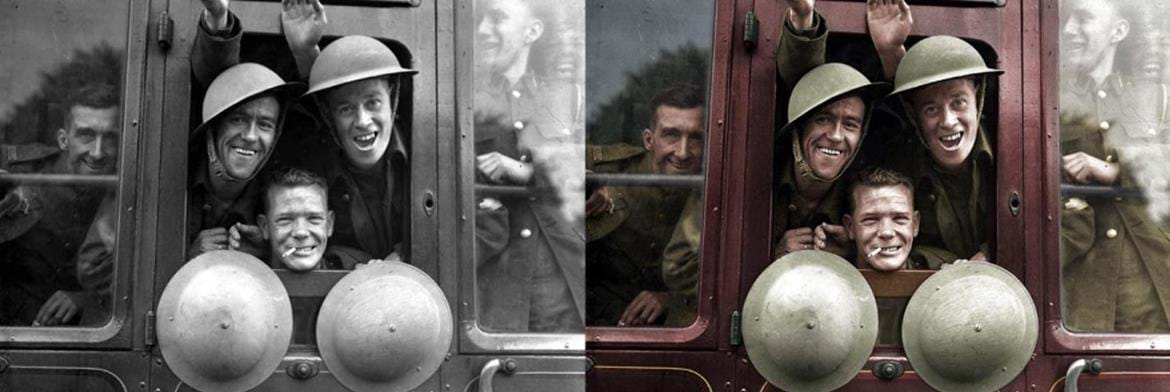
This black and white portrait is an exciting piece of art by Alexander Gardner because he shot it by accident. It is famously known as the ‘cracked-late’ image of Abraham Lincoln. Gardner captured it in February of 1865 at his studio.
The glass plate used to capture the photo cracked when he applied the emulsion to it. Gardner pulled a single portrait and discarded the cracked plate. The photo dates to the end of the Civil War and many historians think that it portrays the president’s confidence in winning the war. Many believe the colourised version of this famous photo shows a more magnificent aura of power on the president’s face and stance.
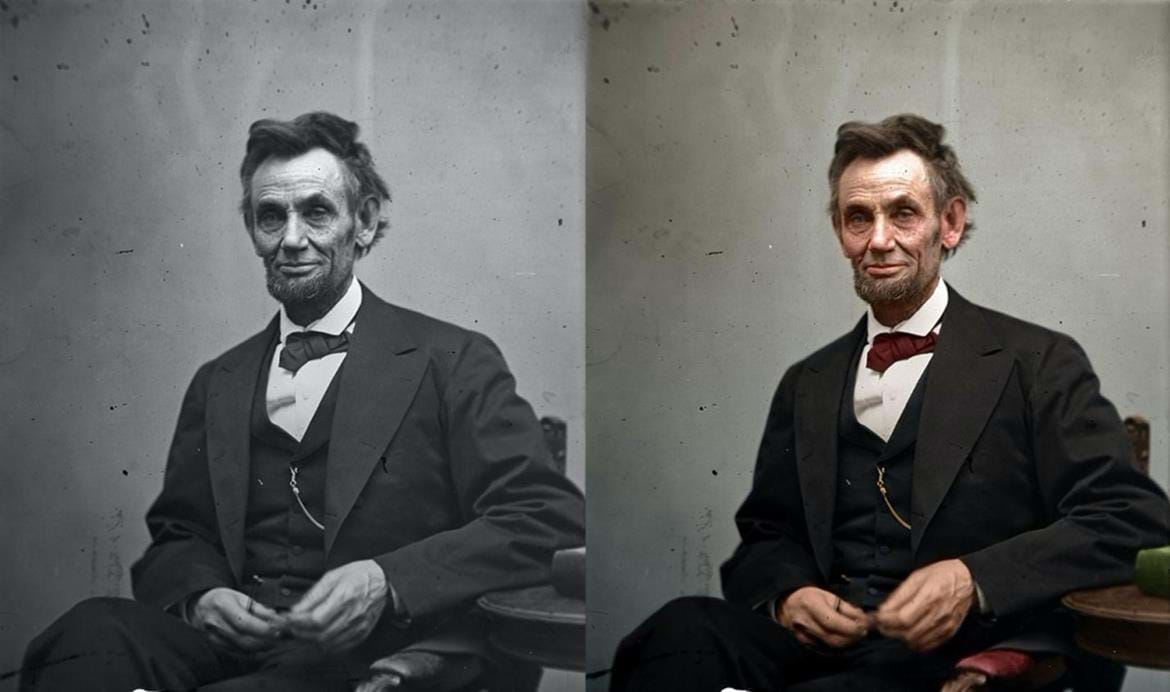
This picture is an iconic document of an unemployed lumber worker who goes to the bean harvest with his wife. The original is in black and white and dated 1939 in Oregon. One of the central points of this photo is the social security number tattooed on the man’s arm.
Dorothea Lange, a photojournalist and documentary photographer, shot this photo. She is best known for her work during the era of the Great Depression.
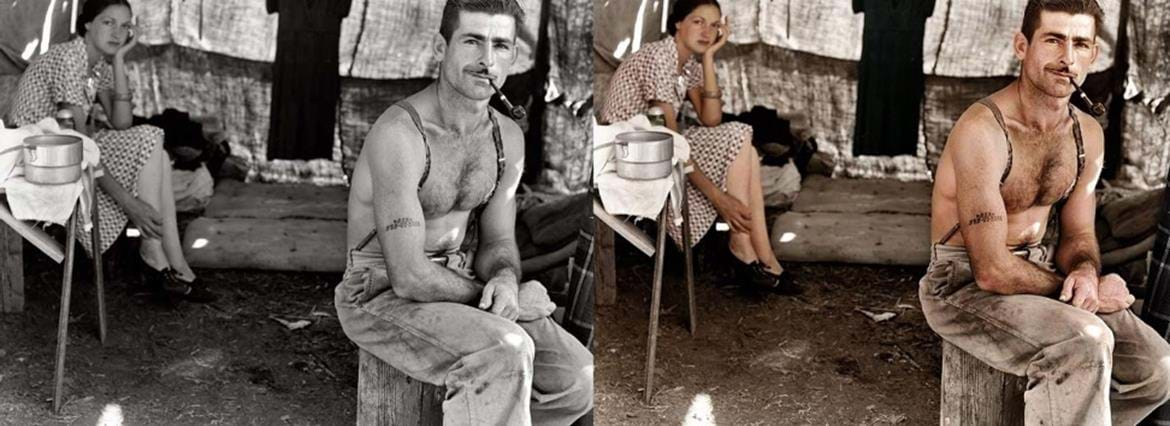
This Hindenburg disaster photo was shot by Sam Shere, a photojournalist, on May 6, 1937. The unfortunate event occurred in Manchester Township in New Jersey, US. The colourised version of the original black and white photo adds another dimension to it, reminding of the fiery incident. Sam shot it using a significant Speed Graphic camera.
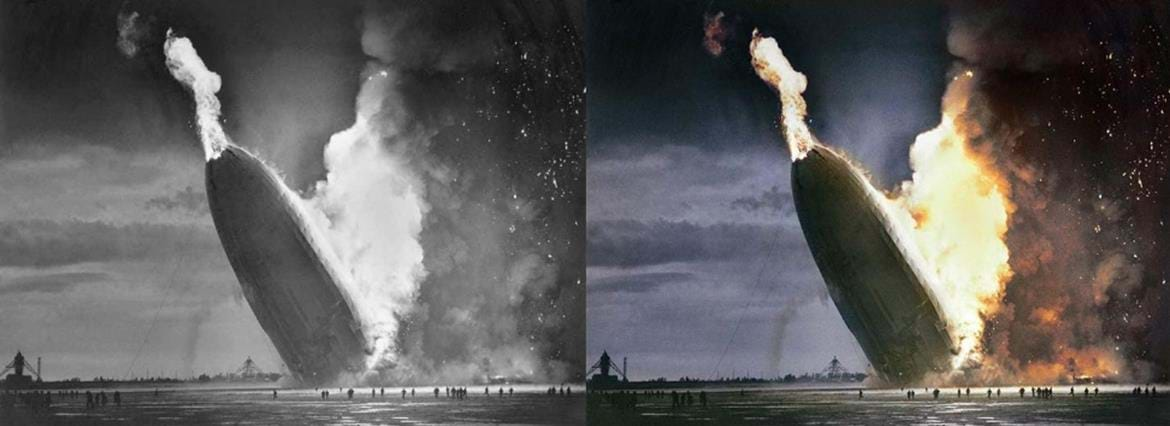
George Collins Cox took this famous photo of Walt Whitman in 1887. Coloured photography was not prevalent at this time, even when the techniques existed. Whitman was a well-known American journalist, poet, humanist, and essayist. George Collins is known for the portraits of Whitman and Henry Ward Beecher.
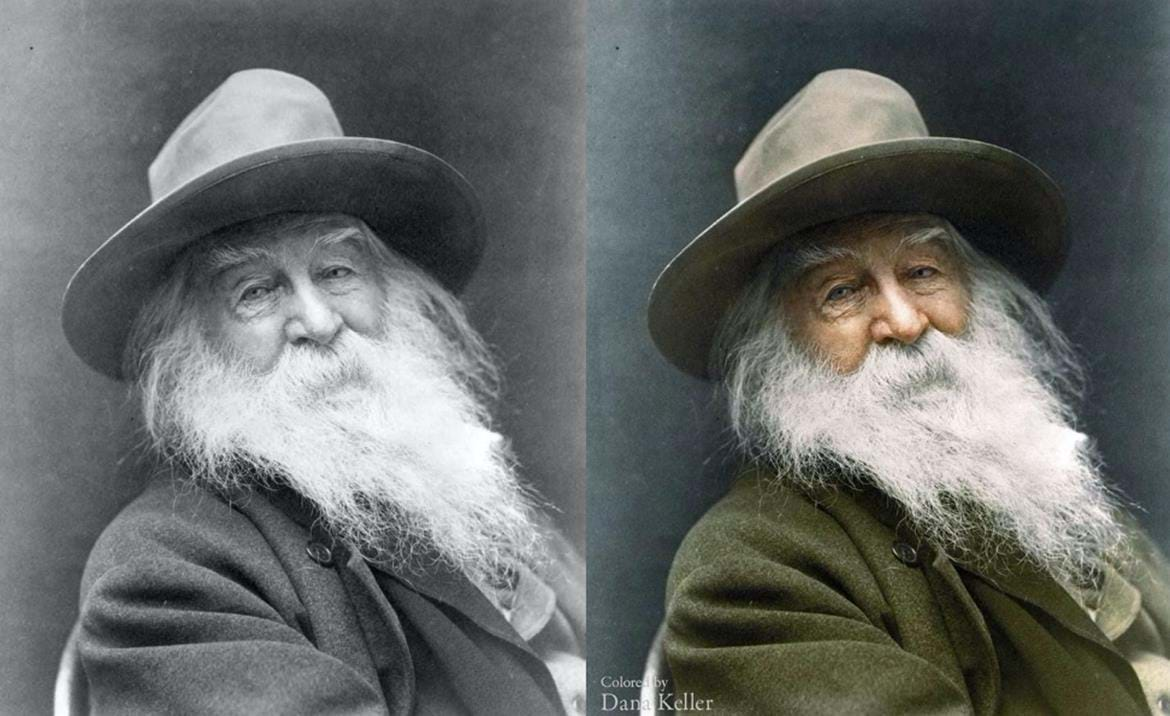
These are some of the most popular colourised vintage photos from history. There are hundreds of other examples that have become iconic for their times.
No worries! We can fix it and make it beautiful.
from our blog
You might also like
There's a first time for everything. And that includes digitising photos!. Find about the clever minds that made this possible.
The art and science of photography hit a lot of milestones in a short amount of time. What we call Stereoscopic Photography was just another step in photography's evolving technology in the transition from paintings to photos.
The process of photo retouching has been there for as long as photography has been in existence. Photographers would paint or draw on top of their film, scrape it with knives, or combine multiple negatives to create one print.
Many developments took place before modern photography came into existence.
Here are some fun facts about how the pioneers of this visual art produced their pictures back in the day and the most important inventions.
